Refine search
Actions for selected content:
26946 results in Economic history
9 - Theoretical, Historical, and Policy Implications
- from Part IV - Conclusions
-
- Book:
- Economic Ideas in Political Time
- Published online:
- 05 July 2016
- Print publication:
- 14 July 2016, pp 205-212
-
- Chapter
- Export citation
8 - Constructing the Global Financial Crisis: From Accommodation to Iteration
- from Part III - The Construction, Conversion, and Crisis of the Neoliberal Order
-
- Book:
- Economic Ideas in Political Time
- Published online:
- 05 July 2016
- Print publication:
- 14 July 2016, pp 179-202
-
- Chapter
- Export citation
Part II - The Construction, Conversion, and Collapse of the Keynesian Order
-
- Book:
- Economic Ideas in Political Time
- Published online:
- 05 July 2016
- Print publication:
- 14 July 2016, pp 49-132
-
- Chapter
- Export citation
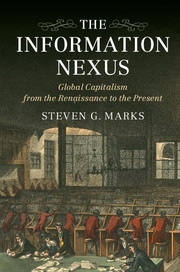
The Information Nexus
- Global Capitalism from the Renaissance to the Present
-
- Published online:
- 05 July 2016
- Print publication:
- 25 July 2016
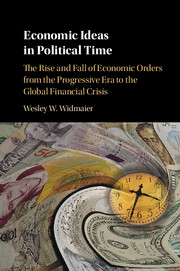
Economic Ideas in Political Time
- The Rise and Fall of Economic Orders from the Progressive Era to the Global Financial Crisis
-
- Published online:
- 05 July 2016
- Print publication:
- 14 July 2016
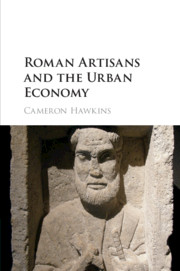
Roman Artisans and the Urban Economy
-
- Published online:
- 05 July 2016
- Print publication:
- 19 July 2016

Discourse on Leadership
- A Critical Appraisal
-
- Published online:
- 05 July 2016
- Print publication:
- 21 July 2016
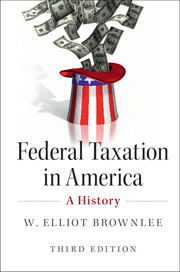
Federal Taxation in America
- A History
-
- Published online:
- 05 July 2016
- Print publication:
- 18 July 2016
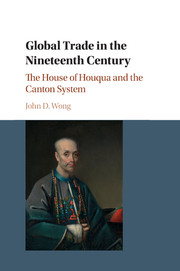
Global Trade in the Nineteenth Century
- The House of Houqua and the Canton System
-
- Published online:
- 05 July 2016
- Print publication:
- 04 July 2016
Figures
-
- Book:
- Global Trade in the Nineteenth Century
- Published online:
- 05 July 2016
- Print publication:
- 04 July 2016, pp viii-viii
-
- Chapter
- Export citation
5 - To Reorganize or To Be Recognized? Reconstituting Business in the Reconfigured World of Global Business
-
- Book:
- Global Trade in the Nineteenth Century
- Published online:
- 05 July 2016
- Print publication:
- 04 July 2016, pp 135-176
-
- Chapter
- Export citation
2 - Lodging in an Existing Institution
-
- Book:
- Global Trade in the Nineteenth Century
- Published online:
- 05 July 2016
- Print publication:
- 04 July 2016, pp 32-71
-
- Chapter
- Export citation
Dedication
-
- Book:
- Global Trade in the Nineteenth Century
- Published online:
- 05 July 2016
- Print publication:
- 04 July 2016, pp v-vi
-
- Chapter
- Export citation
Epilogue
-
- Book:
- Global Trade in the Nineteenth Century
- Published online:
- 05 July 2016
- Print publication:
- 04 July 2016, pp 222-228
-
- Chapter
- Export citation
Copyright page
-
- Book:
- Global Trade in the Nineteenth Century
- Published online:
- 05 July 2016
- Print publication:
- 04 July 2016, pp iv-iv
-
- Chapter
- Export citation
Contents
-
- Book:
- Global Trade in the Nineteenth Century
- Published online:
- 05 July 2016
- Print publication:
- 04 July 2016, pp vii-vii
-
- Chapter
- Export citation
Index
-
- Book:
- Global Trade in the Nineteenth Century
- Published online:
- 05 July 2016
- Print publication:
- 04 July 2016, pp 242-247
-
- Chapter
- Export citation
4 - Sustaining Trust
-
- Book:
- Global Trade in the Nineteenth Century
- Published online:
- 05 July 2016
- Print publication:
- 04 July 2016, pp 105-134
-
- Chapter
- Export citation
6 - Houqua's “Swiss Account” in America
-
- Book:
- Global Trade in the Nineteenth Century
- Published online:
- 05 July 2016
- Print publication:
- 04 July 2016, pp 177-204
-
- Chapter
- Export citation
Acknowledgements
-
- Book:
- Global Trade in the Nineteenth Century
- Published online:
- 05 July 2016
- Print publication:
- 04 July 2016, pp ix-xii
-
- Chapter
- Export citation
